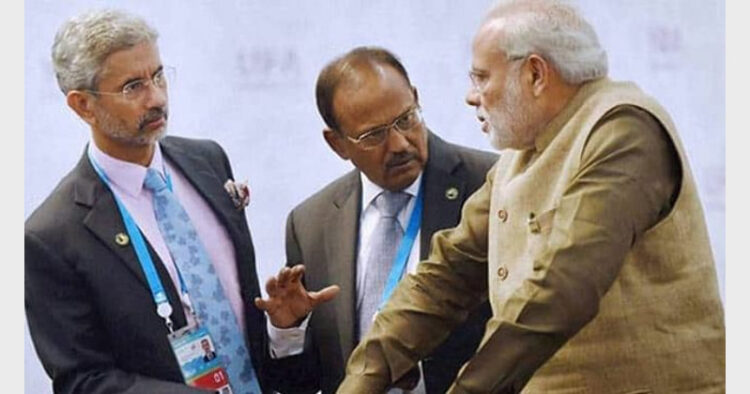Prime Minister Narendra Modi is taking developments related to Afghanistan seriously and keeping a close watch.
In view of the evolving situation, he has also set up a high-level group comprising External Affairs Minister Dr S Jaishankar and NSA Ajit Doval and several senior officials.
This panel is to 'focus' on the immediate priorities of India, a source said.
"This group has been meeting regularly over the last few days. It is seized of issues pertaining to the safe return of stranded Indians, the travel of Afghan nationals (especially minorities) to India," the source said.
India and the rest of the world have been assured that the territory of Afghanistan is "not used in any manner" for terrorism directed against India.
"The group has also been monitoring the ground situation in Afghanistan and international reactions, including the Resolution passed this morning by the UN Security Council".
India played a crucial role in adoption of this historic resolution.
This was adopted with India at the chair and New Delhi was represented at the meeting by Foreign Secretary Harsh V Shringla.
"The UNSC Resolution 2593 addresses India’s key concerns pertaining to Afghanistan at this time. Therefore, we played an active role in ensuring its passage," a source said.
A crucial aspect of this resolution is that it could avoid the veto votes of two permanent members, Russia and China.
It is also significant that the Resolution has declared that the Security Council decides to remain "seized" of the matters pertaining to Afghanistan. This was a futuristic remark but it generates some hopes that in future the UNSC could act more tough and perhaps more articulate and clear.
"We believe that this decision to say UN body will be 'seized' of the matter has an important bearing on the course of developments in Afghanistan," a source said.
It is a "matter of satisfaction" that the Indian Presidency could contribute to serious "international consideration" of this key issue.
Two other areas – India can draw some elements of satisfaction were in reference to the UNSC Resolution 1267, of course with regard to Pakistan-based terror organisations Lashker-e-Taiba and Jaish-e-Mohammed.
The resolution clearly "demanded" that Afghan territory not be used to threaten or attack any country or to shelter or train terrorists, or to plan or to finance terrorist acts.
Thirteen of the 15 UNSC members adopted the UNSC resolution while Russia and China abstained.
The draft from the 15-member strong council, co-written by the US, UK and France, hoped that the Taliban will "adhere" to its various commitments.














Comments